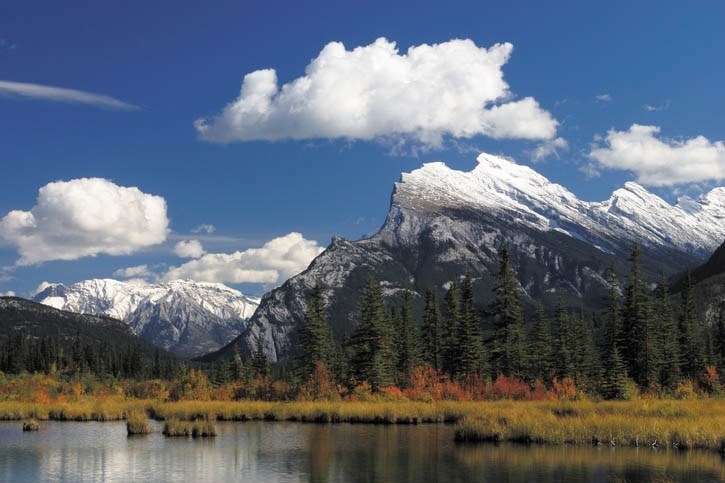Thousands of dead and dying fish have been found in Vermilion Lakes near Banff.
The call came into Parks Canada on Saturday (Jan. 7) and upon investigation, Parks officials say they discovered that dissolved oxygen levels of the lake were very low.
They say that very likely resulted in a naturally occurring phenomenon referred to as “winterkill”, where the aquatic life is deprived of oxygen over a sustained period of time leading to their demise.
Kira Tryon, public relations and communications officer for Banff National Park, said winterkill occurs when ice and/or snow levels above the water’s surface become so thick that light cannot penetrate the water column.
“Thereby, aquatic plants and algae cannot produce oxygen through photosynthesis, resulting in a concurrent decrease in the amount of oxygen available to the aquatic life below the ice, which can cause mass fish die-offs,” she said in an emailed statement.
“Winterkill most commonly affects shallow, nutrient-rich lakes and wetlands. Larger lakes hold more oxygen and are more resilient to winterkill. Those visiting Vermilion Lakes may see dead fish in this area.”
The dead and dying fish are visible from the shorelines.
Tryon said the public is reminded to remain vigilant of wildlife should they be attracted to the area to feed on the fish.
“Parks Canada will continue to monitor the situation over the coming weeks and months and respond accordingly should issues be identified,” she said in the statement.
More to come…




